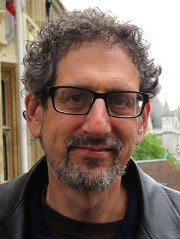This month, we discuss pejorative expressions with Robert May, distinguished professor of philosophy and linguistics at University of California, Davis. Click here to listen to our conversation.

So pejorative expressions are politically incorrect. We should not, say, call Jews kikes. How should we understand why we should not? May says we should not for the simple reason his mother taught him as a child: “There are no such things as kikes.”
Lest May’s mother sound trivial, note what May specifies his mother was not saying. Of course, May does not take his mother to have said that people do not get called kikes; that would obviously be false. But May also did not take his mother to have only said that people should not be called kikes. She certainly thought this, but had she said nothing more, she would have left open the possibility that there are such things as kikes. Were kikes actually to exist, one still might discourage use of the word for social reasons such as courtesy or safety; but those reasons would be less powerful philosophically.
No, with her simple expression, May takes his mother to have articulated nothing less than a folk metaphysical theory. This theory holds that one cannot legitimately be degraded merely because of their membership in a group. To be clear: This theory does not hold that such degradation is possible but inadvisable. Rather, it holds necessarily that such degradation is impossible: Membership in a group never by itself legitimates degradation. So, for example, membership in a Jewish community never by itself legitimates degradation. Meanwhile, a kike is someone who can be degraded merely because of their membership in a Jewish community. But by May’s mother’s theory, no one can legitimately be degraded merely because of their membership in any community. In other words, no one is a kike. So, one should not call Jews kikes because, well, there are no such things as kikes.
Having turned his mother’s worldly wisdom into philosophy, May indicates that his philosophy can in turn help us understand problems in the world, like prejudice. For instance, people who call others kikes are of course rude and dangerous; but if kikes do not so much as exist, then we can specifically understand people who call others kikes to hold a false belief: the belief that kikes exist. The belief is not merely politically incorrect; it is incorrect.
Join us as Robert May further explains and defends this understanding of pejorative expressions.
Dominic Surya